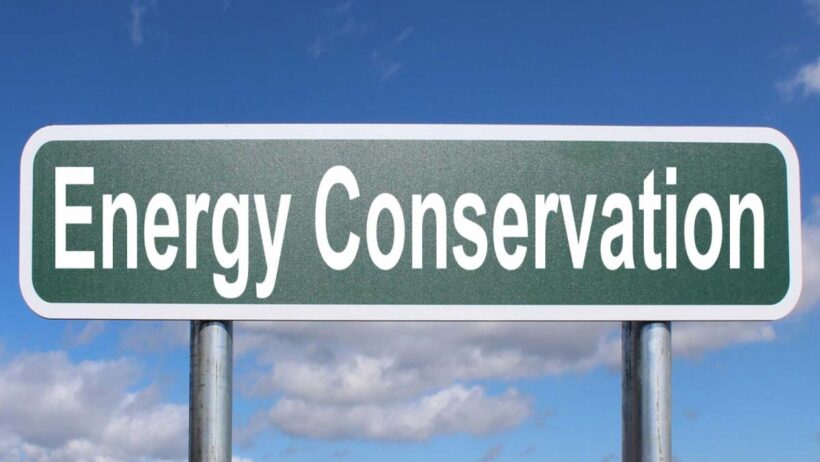Conserving energy has increasingly become a focal point in the quest for sustainable living. As demands on natural resources grow, understanding the multifaceted benefits of energy conservation not only addresses immediate ecological concerns but also promises to instigate a profound shift in societal perspectives. Let us delve into how these conservation efforts can significantly benefit our planet.
To begin with, conserving energy directly contributes to the mitigation of climate change. The combustion of fossil fuels for energy production is a leading source of greenhouse gas emissions. Reducing energy consumption can subsequently diminish these emissions, creating a cascading effect on global temperatures. This is not merely an abstract concept; it translates into tangible changes in weather patterns, sea levels, and ecosystem health. A concerted effort to save energy today can thwart the dire consequences anticipated in the not-so-distant future.
Moreover, energy conservation enhances biodiversity preservation. Natural habitats are increasingly fragmented due to the encroachment of industrialization and urbanization. The demand for more energy leads to exploitation of untouched lands, often resulting in habitat destruction. By prioritizing energy-efficient practices and renewable energy sources, we can alleviate the pressure on vulnerable ecosystems. Areas that are currently at risk of development could be protected, allowing flora and fauna to thrive unimpeded.
The economy, too, stands to benefit decisively from energy conservation. Adopting energy-efficient technologies and practices often reduces operational costs for businesses and households alike. Initial investments in energy-saving devices may seem daunting; however, the long-term savings on utility bills can be substantial. Furthermore, this shift stimulates an inventive economic environment, fostering the growth of green technologies and creating sustainable job opportunities. As energy-efficient practices gain traction, a new wave of economic resilience emerges, bolstering community sustainability and improving general welfare.
Emphasizing energy conservation promotes independence from volatile fossil fuel markets. Nations heavily reliant on imported oil often find themselves subject to price fluctuations that can cripple local economies. By investing in energy efficiency and local renewable sources—such as solar or wind—we reduce this dependency. This strategic pivot not only stabilizes local economies but also empowers nations to harness their own resources more effectively, contributing to national security and self-sufficiency.
Additionally, the intricate relationship between energy conservation and public health cannot be overstated. Energy production, particularly from fossil fuels, contributes to air pollution—linked to respiratory ailments, cardiovascular diseases, and other health detriments. By decreasing energy usage and shifting towards cleaner energy sources, populations can experience improved air quality. The ripple effects of a healthier populace are manifold; reduced healthcare costs, increased productivity, and enhanced quality of life emerge as compelling incentives for embracing conservation.
Social equity is another vital concern that conservation efforts can address. The burden of high energy costs disproportionately affects marginalized communities, leading to energy poverty. By investing in energy-efficient homes and public infrastructure, we can render energy use more equitable. Energy conservation is not just about consumption; it’s about creating systems that benefit everyone and ensuring that all community members have access to affordable, efficient energy solutions.
Local engagement in energy conservation initiatives can also foster stronger community ties. Collaborative projects, such as community solar farms or neighborhood energy-saving programs, promote not just sustainability but also social cohesion. As individuals come together to tackle energy challenges, they promote a sense of shared responsibility and purpose. These initiatives cultivate a collective consciousness surrounding conservation, reminding us that even small changes in individual behavior can collectively result in significant impacts.
The technological advancements we’ve witnessed in this domain are promising. Modern innovations—ranging from smart meters to energy-efficient appliances—provide individuals and organizations with the tools necessary to track and reduce their energy consumption. By fully embracing these technologies, we can rethink our daily habits, resulting in a profound realization that conscious consumption is attainable and necessary. This enhanced awareness encourages an ethos centered on sustainability, nudging society closer to a collective goal of responsible energy use.
Ultimately, embracing energy conservation cultivates a culture of mindfulness. It challenges us to consider our consumption patterns and their effects on the environment. We begin to ponder questions beyond mere utility bills—how do our choices affect the planet? The answers to these queries can shape lifestyles that are both ecologically and socially beneficial. Mindful consumers become informed advocates for change, initiating dialogues that extend beyond their immediate circles and inspiring others to join the movement.
In conclusion, the multifaceted benefits of conserving energy extend far beyond mere cost savings. Each positive outcome—be it environmental, economic, or social—interconnects with the others, creating a sustainable web of benefits that can lead to a brighter future. By fostering a culture of efficiency and a commitment to renewable energy, we harness the power to transform our world. The time has come to unshackle our worldview from outdated, wasteful practices and to champion a new paradigm—one that not only enhances human life but also embraces the intricate tapestry of life on Earth. Embracing energy conservation is not just beneficial; it is an imperative for the health and survival of our planet.






